Tuesday, May 03, 2022 / 07.32PM / Teslim Shitta-Bey, CE/ME, Proshare / Header Image Credit: Maruti Techlabs
Corporations need to flex their artificial intelligence and machine learning (AI/ML) credentials in 2022 as consumers tighten their criteria for making spending decisions. Gone is the rampant binge buying of a decade ago as younger consumers become more deliberate or less emotional about their choices. Generation Z was, until recently, known for its fast and furious buying sprees. As the new gizmos elicited a rush of blood to the head, students and young adults instinctively bought new phones, laptops, wrist watches, shoes, dresses, bags, and cars in response to social media buzz rather than functionality.
The autotune generation has gradually shifted from purchases that show wealth and class to investments that represent more considerable future asset value. The new young customers have grown, and their preferences have taken on a unique colouration heavily pixilated with digital tones. The reformed attitudes to products and services by Gen-Zers means that corporations must rethink their service delivery promises and their market product strategies. The previous short-term horizons of Gen Zers are quickly mutating to longer-term market considerations.
Dinosaurs went extinct not because the global weather changed but because they failed to adapt. Change is inevitable, but adaptability is a choice. Corporate survival requires adaptability. Companies must develop artificial intelligence (AI) strategies that help them become faster, nimbler, and responsive to customer preferences. When customers sneeze, corporations should catch a cold while quickly applying flu-repelling medication. In today's business world, the patient dog eats no bones, either lean or fat.
In 2022, Nigeria will dredge up a few new challenges that will give companies fresher opportunities to reposition, refocus, and reset. The new Gen-Z customer and their millennial predecessors will see that companies stay plugged into environmental sensibility, agility, and consumer satisficing.
Younger customers take the environment seriously and incorporate environmental considerations into their product purchase decisions and consumer journey experiences. Admittedly in Nigeria, the environmental factor in the consumer decision-making process may not be as predominant as in Europe, Asia, or the Americas, but it exists nonetheless. Companies that ignore it do so at their peril. As consumers demand higher service and product quality, they insist on environmental friendliness and protection. The demand for environmental-sensitivity places corporations under the burden of "green governance." Going green is not a fad but an underlying consumer theology that will punish offenders and reward respecters of the new consumer age.
Walking the Expectations Tight Rope
With a growing number of digital nomads rising as a proportion of national consumer spending, expectations burn fast. The height and fluidity of expectations could do corporations in as they struggle to keep up with the pace of the new consumer journey. The trick is to preempt expectations rather than trail them.
Playing catchup in increasingly impulsive markets is dangerous, if not disastrous. Companies like Apple, Samsung, Huawei, and in Nigeria, artists like Burna Boy, Davido and Wizkid realize that you create a product or brand that you take through cycles of reconceptualization and freshness. The easiest way to kill a product, brand and cash flow is by standing still. Success rides on the back of continuous evolution that creates fulfilment for an expectation the consumer or customer is yet to express.
On the face of it, this seems impossible, but mapping consumer behaviour patterns and mining big data makes the task less arduous and more intuitive. A Pop icon like Michael Jackson moved from being a teen idol to an intergenerational emblem of cross-cultural musical influences; he glided from Pop to soft rock through rhythm and blues (R&B) and Ballards. Jackson refused to be pigeonholed and held audiences spellbound because he was glacial, agile and intelligent. At the heart of successful artificial intelligence (AI) strategy is the ability to make one's newest product or service irrelevant once it gets to market.
Agility Rules
Agility implies a visceral knack for mobility, changing presentation, functionality and style. In a global market space, continuously looking for the next killer, App, product or service to stay alive is to stay flexible and aggressive. Winners will find this more difficult as an ecosystem of rivals contests for the top spot. Remaining at the pinnacle of the service or product delivery value chain will require more than grit; it would need mental strength and organizational or individual preparedness to be comfortable with disruption. Individuals and organizations must cope with a mix of ideas, designs, strategies and tactics that collectively appear counterintuitive but meet market expectations. The glue that holds it altogether would be the proper use of AI and machine learning (ML). Organizations that properly handle the strategy, structure, deployment and execution of AI will find clever ways of riding the waves of rapidly changing consumer choices and preferences (see illustration 1 below).
Illustration 1 Balancing Agility and Tension
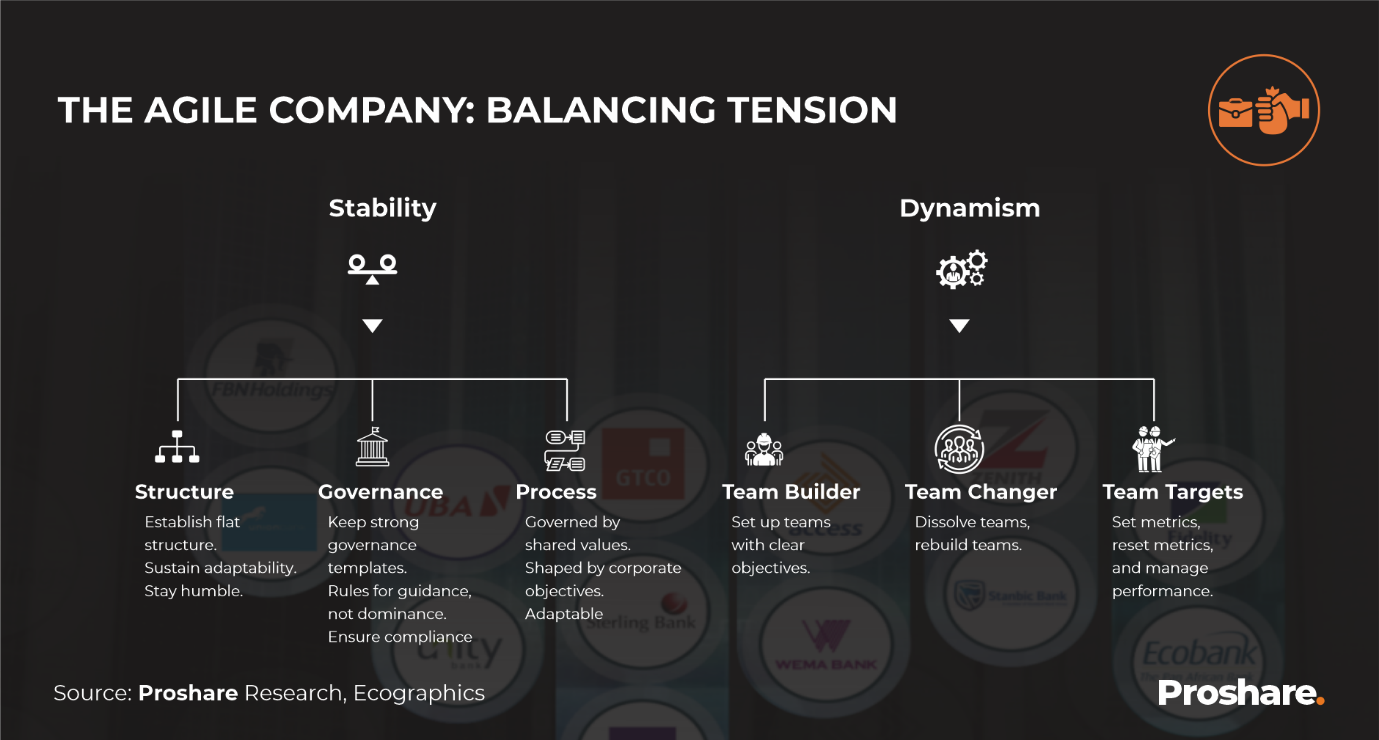
The CEO of RACK Centre, Dr. Ayotunde Coker, at a 2020 Institute of Directors (IoD) Nigeria Conference, pointed out that Nigeria has 144m internet connections, with roughly 10 percent having broadband access. The implication is that slightly under 15m Nigerians have access to broadband internet, indicating that those with broadband internet access in the country are more than the population size of Belgium and Norway.
Consequently, local Nigerian companies will see more transactions move on to digital platforms, and those unprepared for the change may find themselves going the way of Dinosaurs. As was noted in an earlier article, "Fossils may be intriguing, but they do not represent life. Organizations preparing for the future are not museum pieces".
Companies wanting to take on the future must be prepared to handle the twists and turns in consumers' experience journeys by using big data and behavioural analytics. Workers must be retooled and upskilled to achieve success. The culture of an intense digital interface must percolate across the company, with the Chief Executive Officer (CEO)leading from the front and not the rear. Often, CEOs leave the technology charge to IT personnel who lack a comprehensive understanding of how the corporate architecture hangs together and achieves company purpose. The delegation of digital leadership to the company's tech unit is a mistake. Experienced CEOs realize that the engine should not be mistaken for the wheels. Leadership comes from the top.
A Moment in Digital Time
The change to new work cultures, different work skills, revised service and product delivery channels and multiple service platforms to meet different customer needs is not a thing of tomorrow but today. The 'great resignation' and the meta workspace will reshape the reality of work and make the traditional desk job look like the early caveman hunting for meat and foraging for fruits. With young Nigerians barely out of university and high school, doing digital jobs for foreign companies for six-digit paychecks from the relative comfort of their bedroom laptops or desktops, the new digital work order is unfolding.
The key critical elements in this digital moment are people, processes and technology. People will define the best process practices and direct the competitive state of play as they figure out how to surf the customers' experience journey. In an April 2021 report titled "Winning with AI is A State of Mind," McKinsey writers Thomas Meakin, Jeremy Palmer, Valentina Sartori, and Jamie Vickers note that "Executives have seen that the move from running artificial intelligence (AI) experiments and proofs of concept to capturing lasting value at scale requires an investment in strong foundations. These include aligning AI with core areas of the business; embracing important cultural and organizational shifts; and investing in new kinds of technology, training, and processes for building AI". In other words, people must drive the right culture starting from the chief corporate AI driver, the CEO.
The report writers equally observed that "More and more organizations are adopting these basic practices and those that do tend to report the highest bottom-line impact from AI. But successful organizations don't just behave differently; our experience in thousands of client engagements around analytics and AI over the past five years shows that they also think differently about AI. At these companies, AI is etched in the collective mindset ("We are AI-enabled") rather than simply applied opportunistically ("Here's a use case where AI can add value")."
As people feel comfortable with the AI culture change, internal processes change. The company's workflow makes new connections that enhance service delivery optimization. The clear advantage of this would be shorter response time, faster time-to-market service or product delivery because the customer was part of the service or product design. The customer develops a sense of ownership.
The technology would support improvement in processes that meet customer service or product delivery expectations (see illustration 2 below).
Illustration 2 AI the Intersection between People, Processes, and Technology
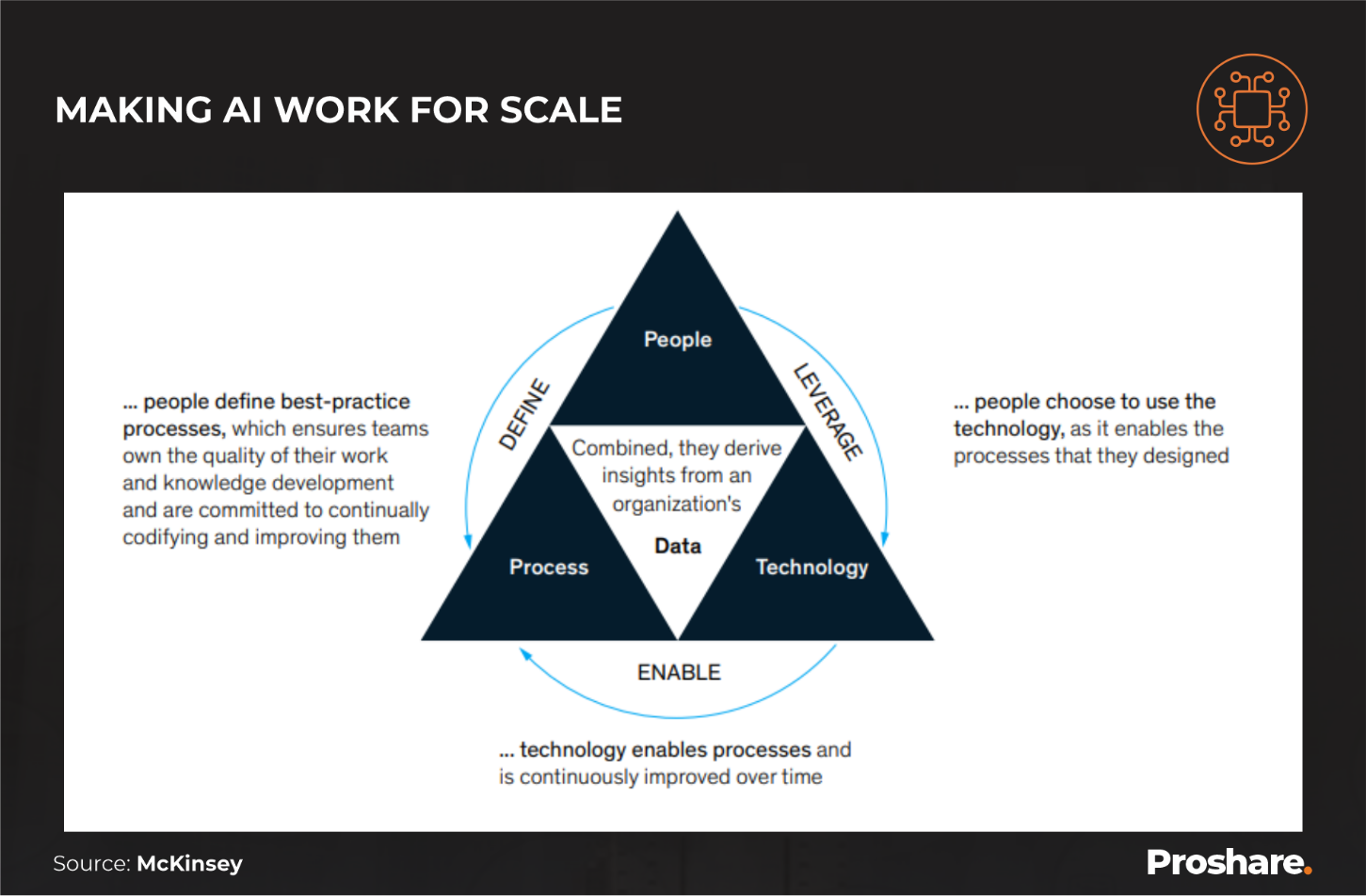
The Pebbled Path Ahead
Walking along the AI and ML seashore means stepping on pebbles. The path to effectively integrating AI into work cultures will neither be smooth nor easy. Still, the results would ensure that organizations meet customers at points of service expectations that will support loyalty, patronage and cash flow.
Analysts note that the mind of an AI-enabled company differs subtlely from that of an AI-using company. Both types of companies answer different questions. An A-enabled company supports team-building and cross-functional digital collaboration, while an AI-using company enhances individual skills and makes the individual more competent. In addition, an AI-enabled company is more invested in the future than an AI-using company specializing in monitoring incremental gains over past performances (see table 1 below).
Table 1 How AI-enabled Companies Think
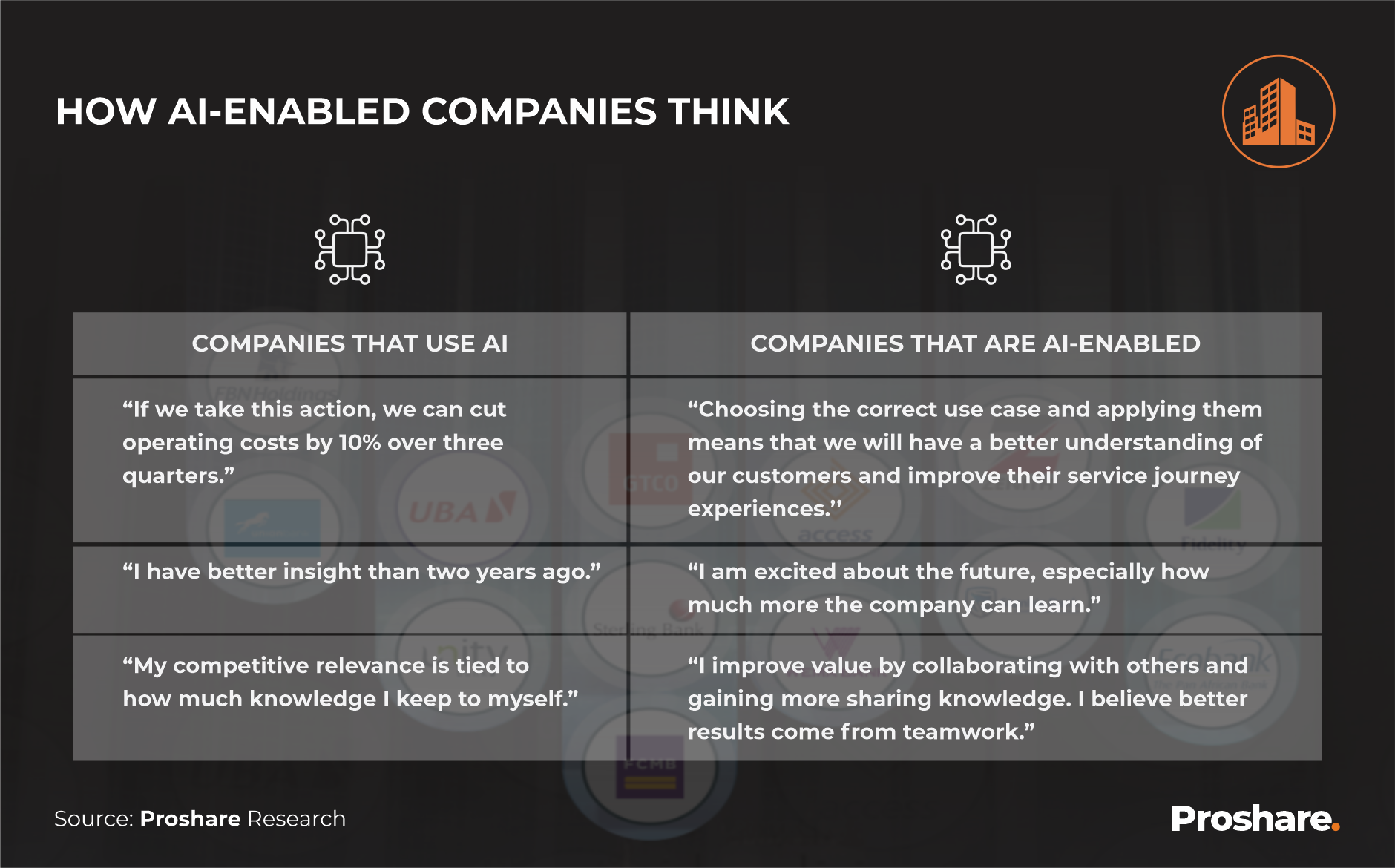
Source: Proshare research
The future holds great opportunities for AI/ML-enabled companies. Nevertheless, the battle to get corporate leaders to take charge of the tough decisions needed to make the AI/ML transition work will be bitter and, in some cases, brutal. Existing organizational structures may need to be torn down and retrofitted for purpose, while personnel may need reskilling or firing. In addition, organizations must work off the playbook of customer expectations captured by big data analytics rather than the hunches of product development teams. Often, companies build products or design services untested by those expected to be the beneficiaries, causing a gulf between a product or service and its intended market. The consequence usually ends up nasty.
To win market share and dominance from 2022, companies must take time to "nowcast" or predict immediate trends using available data and build this into an expectations algorithm that helps meet consumer expectations through iteration (or repeated customer feedback). The feedback loop is a journey some local Nigerian banks may have started taking (see illustration 3 below).
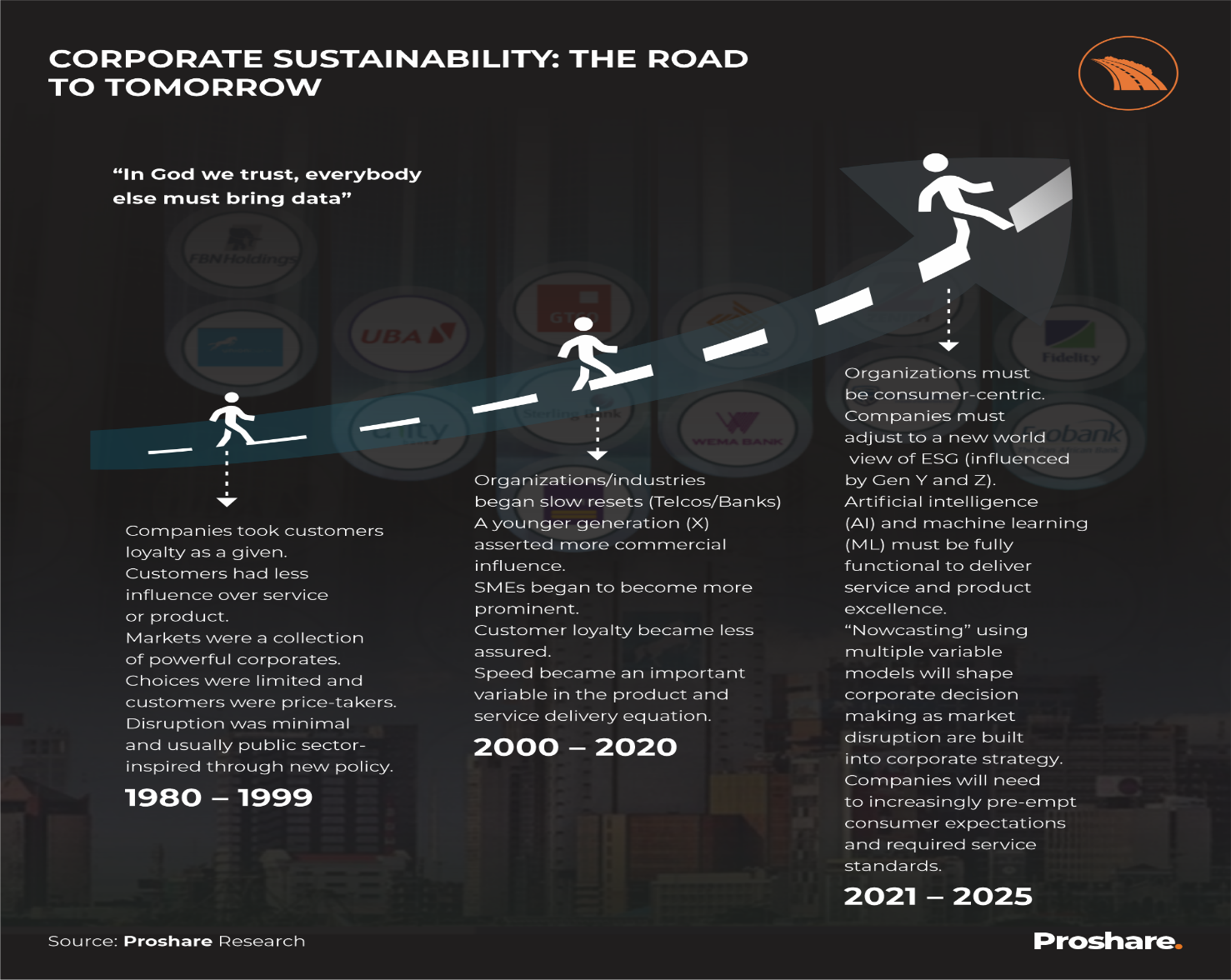
The AI/ML beach pebbles will hurt for a while; however, the sun-baked feet of digitally unprotected corporations will hurt much more when consumers migrate in droves to the smarter algorithms and savvy service delivery of digitally aggressive rivals. The laws of competitive markets are egalitarian, not empathetic.
 Lagos, NG • GMT +1
Lagos, NG • GMT +1











 774 views
774 views



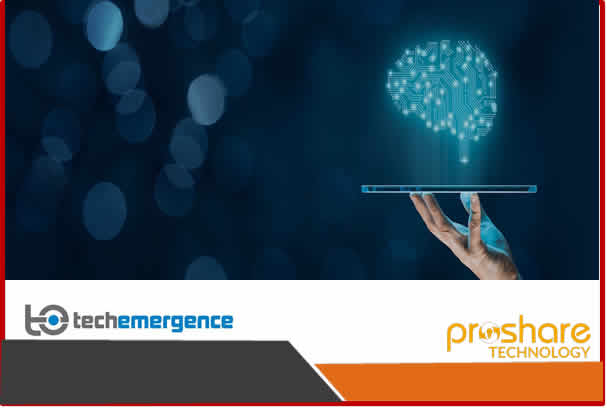
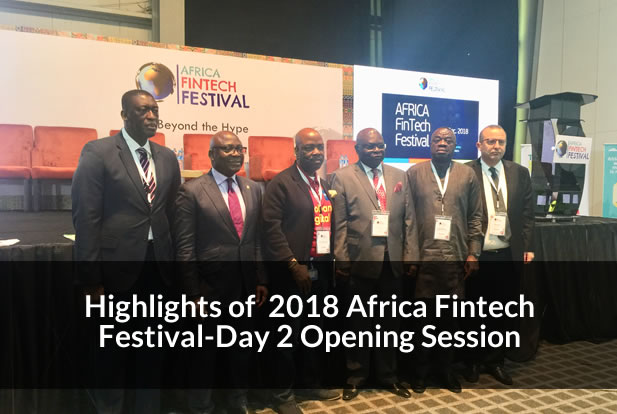
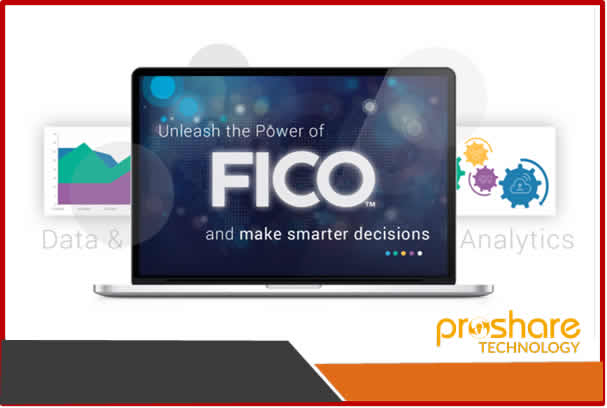
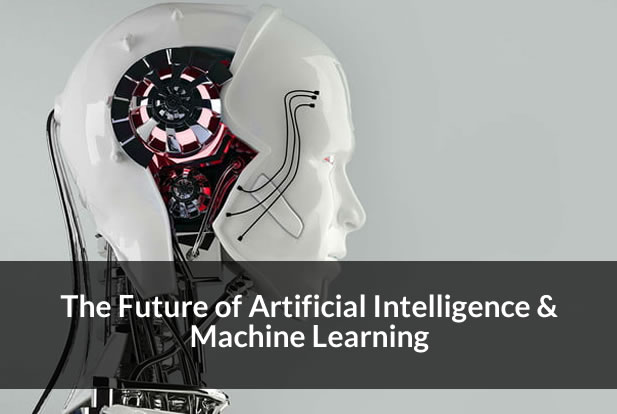





 Sponsored Ad
Sponsored Ad
 Advertise with Us
Advertise with Us









